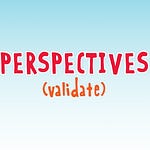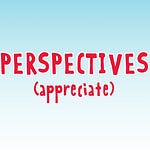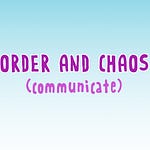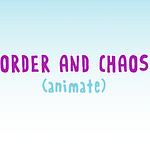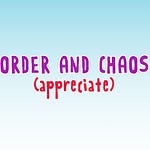Abbie: Hello and welcome to the CosmoParenting Podcast brought to you by the CMM Institute for Personal and Social Evolution. In this space, we invite you to see yourself as someone who is curious about and actively participating in creating your own meaning around parenting.
Today, we are wrapping up our second three themes of the year with our ‘Relate’ episode, where we will dive a little deeper into the relationship between the previous three themes- Relationships, Moral Forces, and Conflict.
Let's begin.
*music*
Abbie: Today, I am joined by Anokh Goodman. Anokh is a systemic psychotherapist and a father himself. Hello, Anokh. Thank you so much for joining me today.
Anokh: Oh, it's lovely to join you today, Abbie. I'm really looking forward to just jumping in, having a bit of a dance together just with some of these ideas. So yeah, great to be here.
Abbie: Yeah, great to have you here. I'm particularly excited to have you for this conversation, which is the third of its kind. There's only four episodes like this throughout CosmoParenting, and that is our ‘Relate’ episode, where we are trying to draw some connections between the themes that we have explored so far.
Today, we are reflecting on power, structures, and communities- our previous three themes. Anokh, what do you see the relationship between power, structures, and communities as?
Anokh: Yeah, I mean, I think it's a great question because I think hearing narratives and people's connection to these concepts- power, structures, communities- was incredible, really. It was nice to kind of hear them brought to life. But I think maybe one of the questions we don't ask so much is what is the relationship between them?
I guess it makes me think of if they were objects or if they were things, what would the conversation be between these things? It makes me think about what's the space between them? Is there a big gap between them?
You know, thinking about power, I think Michel Foucault said power is everywhere. So it influences, kind of, everything. Then it makes me think, well, is community everywhere? Is community just an idea that we've constructed or we've kind of commodified?
Because I hear the word community a lot in my work. I think I've never heard it so much recently over the last few years. We almost think, well, what is community without communing? So is community just something we say?
And again, you know, if there's power without community, there's a risk of domination, I think. You know? So we can ascribe kind of meanings of what community is- it can be a lived story for ourselves or is it one that we've been told kind of what community is?
So for me, the sort of relationship with power and community, I find really interesting. Equally thinking about structure without power. For me, that might become like a hollow routine in a way. I think you asked some great questions around, like, what's the purpose of the structure? Is it the structure for structure's sake?
Abbie: Right.
Anokh: Equally, we could have structures around community, how we become a community, how we are being a community. So these structures and rituals- I think some of the people on the episodes were talking about rituals and ceremony- and I guess I'm really interested in how maybe power can be ascribed to certain rituals.
But maybe for me, I'm more interested in my own life, you know, what power do I connect to rituals as opposed to the ones that are already preloaded? I think for me, personally, in a family setting, when I think about families and my own family, I don't think power is like a throne that, okay, someone sat on that throne in that family or in that organization, whatever it is.
For me, it's more of a thermometer, maybe. It's a way of checking the collective temperature. And it does exist everywhere, as opposed to it only sits on that throne, if that makes sense?
Abbie: Yeah, I really appreciate the way you're starting to talk about these three together because it's making me realize that the beautiful thing about having four episodes about a topic is that my understanding of the theme really changes over the course of that month. And even so, I'm realizing that, I think, that whole month I was really talking about power as something that a person has or does not have. And what you're offering here is a think about what power do we give to things like structures or communities in our lives?
And so I'm thinking, yeah, this relationship is a two way street between things like communities and power- being in community can empower us, having structures that positively shape our day and our daily lives, that empowers us.
And what power are we giving to the structures we have in our lives? What power are we giving to the communities? And so I like this kind of like cyclical relationship of one generates the other in a way.
Anokh: Totally. Yeah, absolutely. Like, I love the film Wizard of Oz. So I'm often talking about the film. But, you know, that's a journey to acquire power from the powerful person, which is the wizard at the time, who's a charlatan, basically.
But there's something of the power being in the journey. So it makes me think of a family- that it might be power by doing certain things, by going certain places, by achieving certain things. Or is the power in the journey of them people? You know, the scarecrow, we think of the lion, it's actually embedded in the journey, yet we're told that it's a place we go and then we get the power, we get the certificate to tell us we're smart or we're valuable or we're powerful.
One of the things I wanted to bring really that really stood out to me was the relationship between sort of structures and community and power for me- I'm quite a visual person so it made me think of two ideas you know one is like a sometimes we think like a tree-like structure we think of like a family tree so there's that, you know, the roots, the branches, and it builds up, but for me there's an interesting idea it's by Deleuze and Guattari- they talk about rhizomatic ways of connecting and what that means is I guess rhizomes are sort of different plants and some of them plants will spread and survive harsh conditions by developing roots and shoots all over the place.
So, what that means for me is community can be… it can kind of emerge from all sorts of different places. I don't think it's always this kind of one dimensional, hierarchical, tree-like system it might be just sometimes networks just spreading up all over the place, you know, and I just think that's, yeah, it's a more realistic way to look at family life.
One person in the show was talking about- I can't remember the phrase- it was really it was really interesting, but it was you know seeking community from different people to have different kind of conversations with her son.
And I thought that's that rhizomatic networks emerging out of the soil, you know, not just a one plant, tree growing upwards, but actually loads of stuff, you know, giving the soil nutrients.
Abbie: Mmhmm. Yeah, I really appreciate that visual metaphor because it's something that I think about; these episodes in particular are an answer to something that goes on by the nature of the way that we've set this up, which is every month we're focusing on one theme.
And so it kind of maybe treads a dangerous line of slipping into like each of these things are disconnected. So you put your parenting and communities lens on, and then you put your parenting and structures lens on when really they are interconnected.
And so I see the same metaphor that you're talking about as all of these themes might look like an individual plant from the ground. If you're looking at like a garden or a forest, maybe you have 12 trees and they're each of the themes and they look individual, but if you go under the surface, they are deeply intertwined.
And so that's the purpose of this conversation to say, well, let's look at roots part. We've been looking at the trees part- which are beautiful and valuable- but what's going on in the roots and how these are interconnected? So, Anokh, as we wrap up what last things do you want to say about power structures and communities
Anokh: Yeah, absolutely. It makes me think that you know when we look through different lenses the image of what we're seeing is stained by previous lenses so if we are looking at through different lenses- power, community, structures- then when we do that process our eyes are stained by what we've seen previously. Similar to flowers- you know, if I was smelling 10 different flowers, my nose and my scent will be influenced by what has previously been smelled and it will kind of collide and combine.
I've written like a really short piece, which I'll just read and it sort of connects to some of these themes. So…
Power in families is less a crown than a rhythm—sometimes steady, sometimes stumbling. Structures root us like trees, yet life keeps growing rhizomes, spreading sideways, wild and alive. Community is the wider chorus, the soil that holds both root and branch, tangle and bloom. And in all this, parenting is less about control than about co-creating meaning—shifting patterns, weaving new belonging, moment by moment.
Abbie: Anokh, thank you so much for sharing that. Thank you so much for sharing all the perspective you have today and for joining me. And to everyone listening. Thank you for joining us as well. Don't forget to check out www.cosmoactivities.com for our other resources in this series. And be sure to comment on this podcast episode on the CosmoParenting Substack. We're so grateful to be on this journey with you, and we will look forward to joining you next week for the first episode of our ‘Order and Chaos’ theme.
*music*




